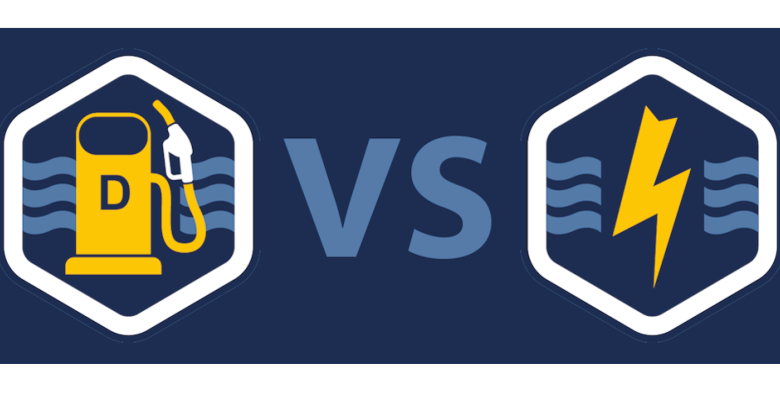Often engineers are faced with a choice – “Should I use a diesel-powered pump or an electric one?”
The answer isn’t always straightforward. There are times when a diesel pump would make the most sense, most obviously when there is no electricity available nearby. However, with the responsibility upon us all to be greener, the need to comply with environmental regulations and the rising cost of diesel fuel, we’re seeing a big shift to electric pumps.
Finding the right pump is crucial to meet the needs of your application, ensure high performance and have minimal impact on the environment. So, before you make the decision, here are some things to consider…
Application and location
Before deciding whether to go for a diesel or electric pump, the first thing you should think about is the application. What type of water is being moved and where is it being moved from and to?
Electric pumps are portable, easy to handle and are generally well suited to ground water control applications, including emergency situations, as well as sewage applications. They are also useful where a pump with smaller footprint is needed, such as construction and mining sites.
And they are ideal for applications where diesel pumps cannot be used, for example where emissions are not allowed. They also reduce the risk of spills and contamination near any water course. They are often powered by generators that can be placed safely away from the water and application which negates the need for costly electrical installations.
Diesel pumps are a logical solution if electrical supply is limited at your site or too unreliable due to it being a remote area. That often makes them a better solution for solids handling; such as in construction and quarry site dewatering, floodwater and municipal applications.
Having said this, modern electric pumps are very flexible and if you choose a model such as one from the Selwood S range, they are perfectly designed for the wear and tear of the water and wastewater environment.
Environmental and safety considerations
In most cases, electric is the way to go if you are looking to reduce your impact on the environment.
They are far cleaner to run and much quieter than diesel pumps – an essential feature of their performance which makes them ideal if they are being used in residential areas or at night.
With electric pumps, no regular refuelling site visits are required, improving safety and reducing operating costs and environmental risks.
Diesel-driven pumps need to be avoided in areas where there could be damage to wildlife or water because of a spillage, which could lead to contamination.
If ventilation is important to ensure the safety of your site and your people, particularly if the pump is needed underground or in an area which is difficult to ventilate, then electric may be the way to go.
Running costs
Using an electric pump, the price per litre pumped is far lower than for diesel powered pumps. Depending on the amount of time you are using it for, a huge saving can be made by opting for electric.
Many diesel engines require an oil and filter change every 250-300 hours. With maintenance free electric motors you don’t need the work done as often which also brings a reduction in engineers’ travel costs so less carbon footprint.
Regulations
Trying to keep up with constantly changing emissions regulations can be difficult. For example, earlier this year, the use of red diesel was banned for many commercial applications including in pumps.
With electric pumps, you don’t need to worry about this issue. They can be used everywhere – including low emission zones – without any concerns about breaching regulations.
Choosing electric or diesel really comes down to the nature of your application, the location of the site, and how long will the equipment need to run to complete the job.
Our electric pump ranges
Available in either open set or Super Silent installations, our electric pumps are able to meet a wide range of pumping applications and flows.
Our Solids handling ‘S’ pumps, High volume drainer ‘D’ pumps, High head ‘H’ pumps and Positive Displacement ‘PD’ pumps all come in electric versions.
You can also choose from a range of specialist control systems relevant to your requirements – starter panels, inverter control panels, or ultrasonic level control panels.
Fitted with our electric pump installations, our remote monitoring pump telemetry provides you with valuable information on pump performance. Data reporting and alarms sent to any device provide peace of mind on unmanned operations.
For guidance on whether an electric or diesel pump is best suited for your application, get in touch with our Pump Sales team on 023 8025 0137.

